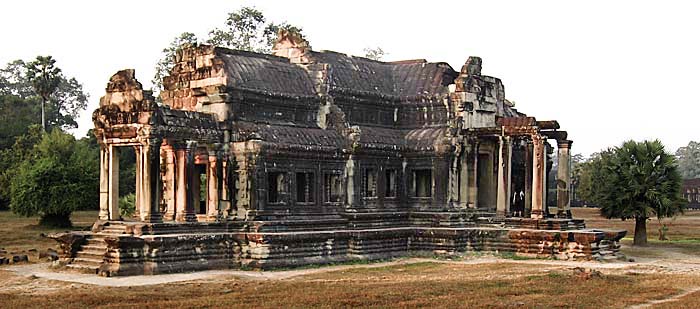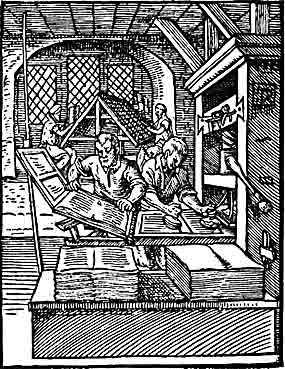Writings are a much more reliable source of information than oral transmissions are. That is because it is checkable again and again. In ancient times writings were made and copied by handwriting, a long and artful procedure. In medieval times that was mostly done in monasteries, who hosted the best libraries of the western world.
That was not always much. The Vatican library in Rome consisted of some 500 pieces of writings when pope Nikolaus Vth became pope. He was very ambitious in expanding the Vatican library. When he died 1455 CE, it consisted of some 1.500 books. That was at the time when Johannes Gutenberg was working on the invention of the printing machine. Most of the writings were texts from the Bible and Christian writings and songs. Others were antique writings, but they weren't very appreciated by the church for their content was considered pagan.
Check the reviews on books on Southeast Asia...
Check the index of books who fed this website....

One of the two outer libraries of Angkor Wat in Cambodia. The Angkorean empire, as well as it's predecessor of Funan, housed a considerable amount of literature. Unfortunately absolutely nothing has survived the tropical climate of Southeast Asia. The works were written on palm leaves, covered with a dark paste and the letters were written on that with a kind of a bamboo stick, used as a pen. The Angkorean literature consisted probably mainly of religious works, but maybe, highly probably, there was more.
The Chinese envoy Zhou Daguan, who spent about a year in 1296/97 CE in Angkor, left the only surviving piece of literature, in fact a report for the Chinese emperor, in which Angkor is described by an eyewitness. Image by Asienreisender, 2006

A printing workshop in 1568. Image: en.wikipedia.org, common free
That's all is a comparably little amount of works. Nowadays many private libraries house much more than that. Big libraries like the British National Library consist of an astronomic much more placement than the Vatican Library some 600 years ago. A huge change came up with the technical innovation of the printing machine. Suddenly it was possible to copy a certain writing much more efficient and faster in great numbers. The monopoly of the monasteries was broken and more and new ideas could spread out. Martin Luther translated the Bible, which was then available only in Latin, into German language. From then on, many common people who didn't learn Latin, could read the Bible themselves, and the monopoly of the Catholic priests was broken. That lead to a revolt agains the Catholic church and to a long period of bloody wars, especially in middle Europe. Besides Luther's Bible translation was the foundation of the modern standard German language.
Nowadays we face a kind of a second Gutenberg revolution. It's the digitalization and the internet. Here anybody can be an author for cheap money, spreading out his ideas. Copying texts is easier than ever before - we use now 'drag and drop'.
But, most important is the quality of the information. Although printing press and internet overflood the world with a huge amount of crap, there is, of course, also a lot of relevant information available. Wikileaks is just one example how relevant information in our times can move a lot. Who is interested and searches for good information and ideas will find plenty of it.
Check the books on Southeast Asia...

